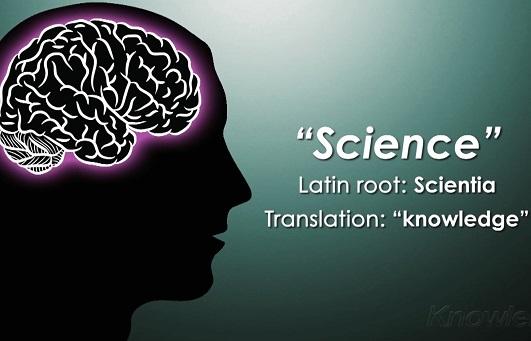Let’s briefly explore the muddy waters of the existential questions, what is science, what is the scientific method, and who is a scientist?
Science can be understood as a philosophical perspective that can be explained through an elaboration of its connection to three other philosophical concepts: epistemology, skepticism, and rationalism.
- What is science?
- What is the scientific method?
- Who is a scientist?
You may also be interested in Scientific method in research.

What is science?
Epistemology refers to knowledge, especially its nature and how we attain it. This involves taking a position on whether what we say we know about something corresponds to reality and to what extent (directly and completely, partially, hardly, or not at all).
One can be a “naïve realist” believing we can acquire knowledge that directly corresponds to objective facts in the real world (e.g., Maria Baghramian). At the other end of the continuum, a hardened skeptic believes (pun intended) that what we call knowledge is completely socially constructed and bears little (if any) resemblance to what actually exists in reality (e.g., Donald Hoffman).
We mentioned realism. Two other dimensions of knowledge are notable: permanence and objectivity. Permanence of knowledge has two poles, one implies that we can at least in some instances know and understand something conclusively and we can thus end any debate about it. The other pole sees all knowledge as tentative, a work in progress. Objectivity refers to a position on whether and to what extent what we call knowledge is comprised of pure facts or a scrambled mix of facts and values.
Skepticism can be understood as an attitude toward knowledge claims in light of the evidence. At one polar end, the believer’s end, knowledge is seen as attainable with certainty. At the other end, the skeptic’s end, nothing can be known about anything with absolute certainty (e.g., one can never know for sure they’re not a brain in a vat). What demarcates a scientific claim from any other type of knowledge claim is skepticism (about the truthfulness of a claim).
Rationalism can be understood as the capacity to reason about the logic of a claim or the capability to justify knowledge claims on the basis of reasoning (deductive or inductive). This dimension is connected to the explanatory or descriptive power of knowledge.
What is the scientific method?
The scientific method can be understood as an operationalization or manifestation of the three interrelated philosophical concepts of epistemology, skepticism, and rationalism in the form of social conventions (e.g., a body of knowledge) and standardized procedures of knowledge making and sensemaking.
Broadly speaking, scientific research is either a form of hypothesis testing or a form of hypothesis generation. In its essence, the scientific method is a justified claim about how to acquire knowledge and hence about the nature of reality. But it’s not an open and shut case: scientific knowledge is a best guess and only probably true.
Who is a scientist?
The preceding framework can help us understand various world perspectives within the believer/skeptic continuum.
1. Believer/faithful: a person willing to accept at least some improbable claims (according to our present understanding of the laws of nature), e.g., miracles, as true objective facts.
2. Secular: roughly, a technocrat (a person’s beliefs in the supernatural or lack thereof of is not factored in their routine knowledge-making and decision-making practices).
3. Gnostic/mystic: one who has esoteric knowledge of the divine or the supernatural or the truth.
4. Agnostic: has no knowledge of the truth; a person who thinks (or believes, as a more emphatic position) there’s likely no way to know what the truth is with certainty.
5. Skeptic: doubts the veracity of knowledge claims (epistemological uncertainty: deductive reasoning is circular and inductive reasoning is illogical).
6. Atheist: an agnostic or a skeptic who decides to take a position regarding the existence of God (it’s a political position because one can keep their lack of belief to themselves).
7. Scientist: a person who looks for naturalistic explanations for observed phenomena using scientific paradigms or theoretical models that produce results that are repeatable. It would be great, and indeed this is the hope, that the results computed using the paradigms or models directly reflect (correspond to) reality, but this point is beyond certainty and scientists will not dwell on it (despite the confusing language that scientists use, the language of “facts” and “truth”–what they really mean is, well, it truly works, so it’s hopefully true).
| Believer/skeptic continuum | Epistemology | Skepticism | Rationalism |
|---|---|---|---|
| 1. Believer/faithful | Realism: naïve realism. Permanence: knowledge is or can be immutable. Objectivity: knowledge is or can be pure facts. | One can be certain of something. | Rationalism is rationalization. Some knowledge or truth is self-evident; intuition can be trusted to reveal true knowledge. |
| 2. Secular | Realism: knowledge corresponds at least in part to reality. Permanence: some knowledge may be immutable. Objectivity: some knowledge may be pure facts. | Probably somewhat a skeptic at heart. | Logic and reason are important for decision making. |
| 3. Gnostic/mystic | Realism: idealism (the material world is an illusion). Permanence: knowledge as consciousness is eternal. Objectivity: subjective experience is what matters most. | Skeptical about mainstream claims. | Intuition (knowledge of the heart) is what to be trusted. |
| 4. Agnostic | Realism: “who knows!” or “I don’t know” attitude. Permanence: “who knows!” or “I don’t know” attitude. Objectivity: “who knows!” or “I don’t know” attitude. | A skeptic; it would be good to know the truth if we could, but we probably can’t so the heck with it. | Rationalist not dogmatic. |
| 5. Skeptic | Realism: common sense realism may be false or misleading. Permanence: some knowledge may be immutable. Objectivity: knowledge is probably imbued with values. | Some knowledge claims that fit the evidence and that can be tested and verified may indeed be true. | Rationalist not dogmatic. |
| 6. Atheist | Realism: knowledge probably reflects reality at least to some extent. Permanence: some knowledge may be immutable. Objectivity: knowledge is drowned in values. | Agnostic or skeptic. | Rationalist not dogmatic. |
| 7. Scientist | Realism: anywhere from direct to indirect realism, with transactional realism (Biesta & Vanderstraeten, 1997) being a sort of a compromise. Permanence: knowledge is tentative, provisional, and emergent. Objectivity: knowledge is anywhere from pure facts to completely socially constructed, with constructivism being a sort of a compromise. | Methodological skepticism; show me a parallel in modern experience; let’s talk about what actually works; knowledge is justified hypotheses (truth, if it exists, may not be knowable). | Rationalist not dogmatic. |
Related content
Canadian identity as an academic idea
Ethical decision-making theories: Introduction to normative ethics
Ethical Hacking Sociotechnology (Introduces Mario Bunge’s philosophy of science and technology)
The technoethics of Mario Bunge
Back to DTI Courses
Other content
1st Annual University of Ottawa Supervisor Bullying ESG Business Risk Assessment Briefing
Disgraced uOttawa President Jacques Frémont ignores bullying problem
How to end supervisor bullying at uOttawa
PhD in DTI uOttawa program review
Rocci Luppicini – Supervisor bullying at uOttawa case updates
The case for policy reform: Tyranny
The trouble with uOttawa Prof. A. Vellino
The ugly truth about uOttawa Prof. Liam Peyton
uOttawa engineering supervisor bullying scandal
uOttawa President Jacques Frémont ignores university bullying problem
uOttawa Prof. Liam Peyton denies academic support to postdoc
Updated uOttawa policies and regulations: A power grab
What you must know about uOttawa Prof. Rocci Luppicini
Why a PhD from uOttawa may not be worth the paper it’s printed on
Why uOttawa Prof. Andre Vellino refused academic support to postdoc



